Middle aged mothers are among Australia’s new problem drinkers
IT’S tough being a mum. But there’s no need to struggle alone. Join our FACEBOOK LIVE with psychologist Sandy Rae as they turn a spotlight on issues facing modern mothers of Melbourne.
VIC News
Don't miss out on the headlines from VIC News. Followed categories will be added to My News.
STRESSED middle-aged women now rank as one of the most at-risk groups of drinkers amid warnings of a looming health crisis.
Alcohol-related hospital admissions for women increased 55 per cent statewide in the decade to the end of 2015, from 8095 to 12,534.
PREGNANCY BOOZING CHANGES KIDS’ FACES
YOUNG WOMEN ARE NEW PROBLEM GAMBLERS
A Sunday Herald Sun investigation has highlighted the private pressures women face as they juggle motherhood with working, ageing parents and domestic duties.
——————————————
——————————————
It has sparked calls for more support and better understanding of a “sandwich generation” of women as it’s revealed:
WOMEN’S admissions to The Alfred hospital for alcohol treatment are approaching men’s for the first time;
IN hotspot Bayside, the rate of women admitted to hospital for alcohol-related harms in 2014-15 exceeded that for men;
ALCOHOL-RELATED hospitalisations for women rose sharply in Cardinia (up 395 per cent), Melton (up 233 per cent), South Gippsland (up 185 per cent), Frankston (up 149 per cent), Wyndham (up 148 per cent), Casey (up 139 per cent), Yarra Ranges (up 125 per cent), Bayside (125 per cent) and Geelong (up 109 per cent) in the decade to 2014-15;
ONE sobriety support group reported around 70 per cent of those seeking help were women; and
ABOUT 20 per cent of Victorian women report high levels of psychological distress.
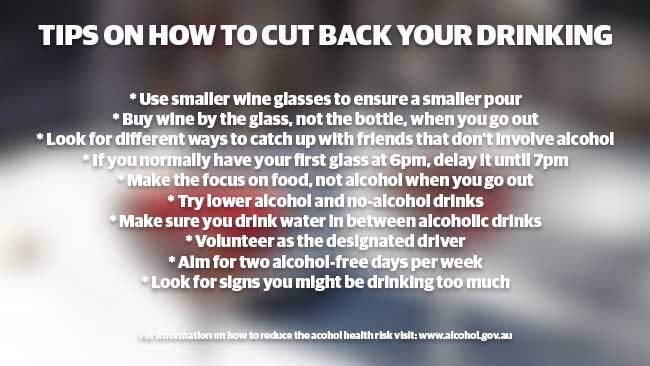
Mounting stress and life’s pressures are being blamed for more women turning to alcohol.
AMA president Dr Michael Gannon said midlife women were now drinking “more than Gen Ys, Millennials and more than their parents (did)”. “The blokey machismo of 15 beers on a Friday night has been overcome and replaced by a normalisation of over-consumption of white wine by females,” he said.
Melbourne GP Grant Blashki said his clinic saw women battling to fulfil multiple roles. “A lot of women who come to the clinic and seem overwhelmed with juggling multiple roles in career and home, and often multi-generational responsibilities to kids, parents and their partner,’’ Dr Blashki said.
“People say, ‘I really can’t sleep, so I have a few drinks. I really can’t relax, but I find if I have a few drinks it turns my mind off.”
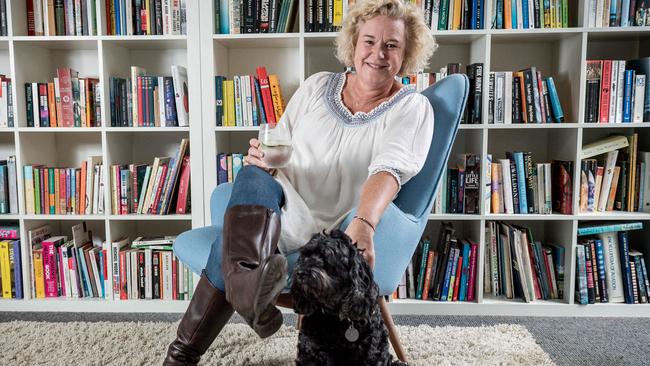
VicHealth’s Maya Rivis said a link had been found between alcohol consumption and women’s psychological distress.
“About 20 per cent of Victorian women report having high levels of psychological distress, many who suffer from depression or anxiety may drink to address those symptoms,” she said. “Women still do the bulk of the domestic work, the stress that comes with trying to juggle full-time work with domestic chores, and children — who are very active today so mums are juggling that with work and chores — means there’s very little time to recover. The more you drink and the more often you’re exceeding half a bottle, you’re putting yourself at risk.”
OPINION: WHY WINE O’CLOCK IS A LIQUID SECURITY BLANKET
The Alfred hospital drug and alcohol physician Dr Benny Monheit saw more middle-aged women needing support for alcohol use.
“We’ve noticed a consistent trend of more women in their 40s and 50s drinking for a variety of reasons,” he said. “Often they have come to a crisis point and want help, and realised alcohol has got out of control.
“The common pattern is that they have difficulty identifying it’s a problem because they’ve moved into a drinking culture where often their friends or colleagues drink the same amount. Or they drink on their own while preparing dinner.”
When Bayside mum Susannah McFarlane realised she was hanging out until 6pm wine time she understood she had “a problem”.
“I was the biggest drinker in a big drinking group,” the author said.
“I don’t do moderation, it’s all or nothing. If you’re going to open a bottle, you finish it. I would panic if I thought I wasn’t going to be able to get (wine).”
With her liver showing signs of regular alcohol consumption Ms McFarlane went cold turkey seven months ago.
Alcohol helped Ms McFarlane in the same way reported by other mums — numbing stress of work plus hands-on parenting, concerns for ageing parents, carrying the mental and physical load of running a home and kids’ routines. She says she feels “great” since quitting booze.
“I get up early, I’ve got energy … I don’t have that need for a drink or feel I ‘deserve’ a drink.”
For help with alcohol-related issues visit Hello Sunday Morning, seek free counselling at Counselling Online visit the Australian Alcohol and Drug Foundation website, the alcohol support page of Lifeline.
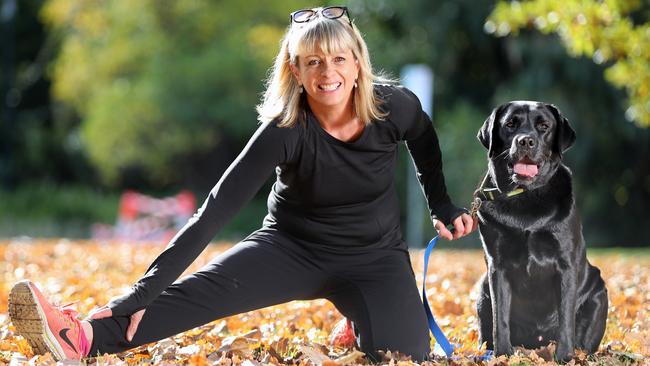
WHEN TEA TIME TURNS INTO WINE O’CLOCK
RADIO host Brigitte Duclos has noticed the social shift in women drinking.
“There’s no more cups of tea now, it’s always a glass of wine,” the devoted mum of two said.
Like many midlife women holding down jobs, families and the household load, Duclos realised “wine o’clock” had become part of coping with the juggle.
“It gets used as a crutch. When I had children is probably when it started, that glass of wine at bath and tea time,” she said.
“Then it becomes instead of catching up with someone for a cup of tea, you find you’re always catching up for a glass of wine. It just becomes the way you live.”
Duclos realised she needed to reassess after struggling to overcome the blow in late 2015 of losing her job, a common crisis point for midlife women.
She realised “something had to change”, and credits quitting grog, with the help of hypnosis, for landing new jobs as sports co-host on Macquarie radio, and a Footy Show producer.
“It just hit me that if I didn’t make a change, nothing else would, my decision was to change alcohol,” Duclos said.
“It’s given me a bit of a confidence boost, so I think that’s why the other things have happened.”
She said socialising wine-free was hard at first. “I realised my personality was in a wine bottle”, she jokes.
But Duclos has more energy and is loving grog-free life.
“The best thing about it is knowing I can. It’s about being in control of your life again.
“You’re the one making decisions, you don’t just have a drink at 5pm as a complete habit.”
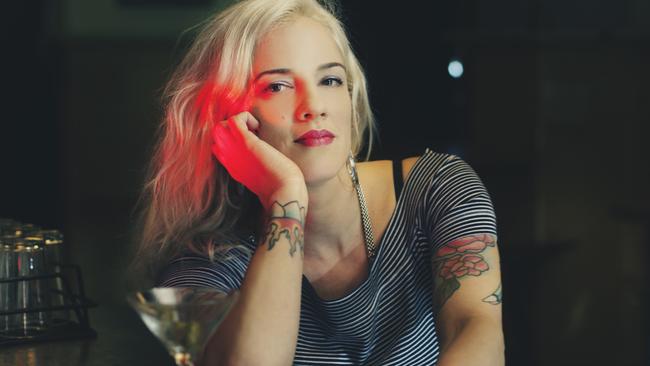
THE RECOVERED ALCOHOLIC AND AUTHOR
JENNY Valentish knows a thing or two about women’s relationship with alcohol having become an alcoholic during an early career in the music industry. Now a journalist and author, she examined how drinking gets out of control in her critically acclaimed 2017 book, Woman of Substances.
“You don’t have to be in danger of having physical withdrawals to feel like, ‘I need help with this’, there are levels of dependence,” she said.
“People don’t realise how many units there are in a bottle of wine; I didn’t. I thought there was probably four units (drinks) in a bottle, it’s actually more like nine. If you are, without even noticing, having a bottle of wine in front of the TV or as you start making dinner, that’s really more than your week’s worth.
“Generation X came from a “ladette” culture ...(in which) a whole range of alcoholic beverages were aimed specifically at women — and they are actually stronger than the ones aimed at men (such as beer).
“When we get to perimenopause (the often long period leading up to menopause) it’s a difficult time with your hormones starting to fall out of balance; our hormones really affect the way we respond to alcohol.
“If you talk about “sandwich generation” stress, it can be about almost losing your identity, who are you? You’re both a child looking after older parents, and a parent looking after children, who may start to not need you any more. It can all be a bit up in the air.
“The role that alcohol plays in lots of people’s minds is it’s the thing that lets my mind shut down at night; I’m not going to be able to sleep without alcohol. I’m not going to be able to perform tomorrow (if I don’t sleep).
“It’s like an efficient way to turn off, I hear that a lot, “I’ve got all these thoughts running around in my mind”.
“The people drinking at the highest levels are 50s to 70 year-olds, that’s an age where its hard to spot if someone’s got a problem.”
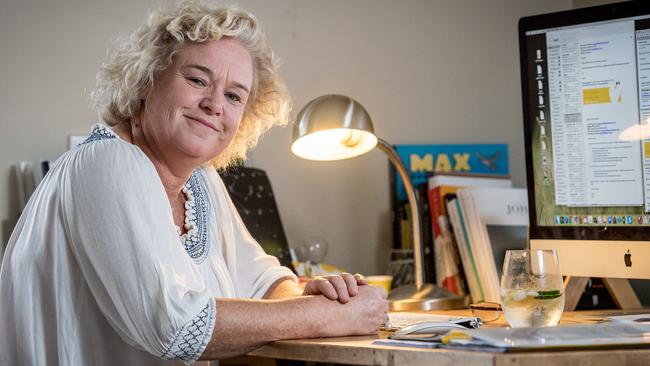
THE DRINKING WRITER
“I WAS the biggest drinker in a big drinking group,” says author and Bayside mum Susannah Macfarlane, “But just because you drink wine in nice glasses doesn’t make it different.”
When she realised she was hanging out until 6pm wine time, and went to the doctor feeling “really depleted”, Macfarlane understood she had “a problem”.
“I don’t do moderation, it’s all or nothing. If you’re going to open a bottle, you finish it,” she said.
“I would panic if I thought I wasn’t going to be able to get (wine). I thought, ‘This is madness, what if I have to drive to do something for the kids? How can I say, ‘Don’t drink too much’ if I am there opening a bottle of Chardonnay?’”
With her liver showing adverse effects of regular alcohol, and her teenage children starting to “clock” her evening drinks, Macfarlane went cold turkey seven months ago.
Her newish Christian faith helped where “no amount of shame” had in previous attempts.
“I don’t know which is harder, telling people I am a Christian or that I’ve given up drinking forever,” she jokes. Some drinking friends found her quitting “confronting”.
Alcohol played a similar role for Macfarlane as it did for other women who spoke to the Sunday Herald Sun — “numbing” the stress of work plus hands-on parenting, concerns for ageing parents, carrying the mental and physical load of running a home and kids’ routines.
“I wanted to be the calm one (at the heart of the family),” says Macfarlane, “but I couldn’t be the calm one unless I was tanked, obviously!”
She substituted alcohol with non-alcoholic drinks and feels “great”.
“I get up early, I’ve got energy … I’ve had a few big things happen, people getting really sick, and also a few really exciting things and I don’t have that need for a drink or feel I ‘deserve’ a drink.”
Best of all, one month after she quit, Macfarlane’s liver function was back to “completely normal”.
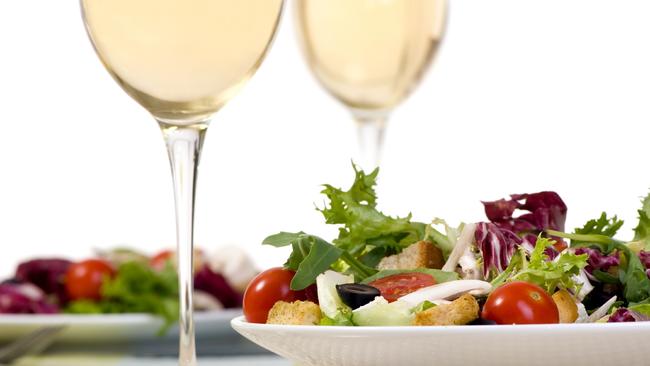
THE BAYSIDE MUM
“Sarah” wishes to remain anonymous. This is her story.
“I gave up drinking completely about five or six years ago. I started getting horrendous hangovers after two or three glasses of wine and thought, ‘I just hate this’. I felt headachy, grumpy, tired and hungover all weekend.
“I asked my GP and she said some people around menopause just can’t take alcohol any more.
“I thought, ‘I just don’t care that much about drinking’, so I gave up.
“What is odd is how people (women especially) don’t like you giving up. I’m in a big social network in (Bayside) and they’re all pretty partial to a wine or seven. And now they’ve discovered designer gin it’s even more so.
BOOZING NO LONGER COOL WITH MILLENNIALS
“I guess what I’ve realised is many people are actually quite socially shy — find big groups and socialising quite hard in reality, but use three glasses of wine to get the evening swinging.
“I reckon if people could accept they’re not mega social, or do different stuff or lose some of the stresses of life, drinking would decrease.
“Women’s drinking is a huge issue ... I’ve seen women in their 50s absolutely blind at social events. Falling in the sea drunk as a marriage collapsed; blind drunk and kissing another of the mothers when worried about money; drunk at book group because their husband hit them — and it’s just never discussed.”
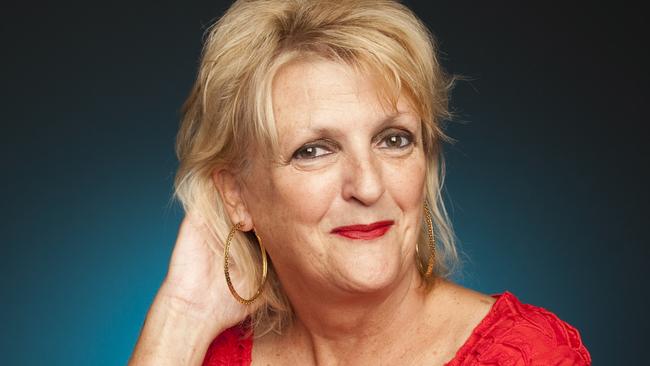
THE ABSTAINER
Singer, actor and writer Jane Clifton worked hard to control the wine habit.
“I still blithely say it was my children who drove me to drink and it was a very short road! I was never a drinker before I became a mother, it’s true there’s this whole demographic of women who, at the end of the day, that glass of wine is such a habit. And it’s reinforced perpetually on TV and in films; working women come home and have this giant goldfish bowl of wine, and the minute you see it you want to go and have one yourself.
“I just decided to give it up in 2014, I was an early uptaker of Febfast ... and in 2014 I just kept going because you always feel so great at the end of Febfast; you feel so strong and you’re sleeping really well. I just conducted it like an experiment to see how long I could go and I did it the whole year.
“I was pretty much a three-quarter of a bottle-a night person and when I started adding that up, if a bottle holds 750ml, two thirds is 500ml. That’s three and a half litres of wine a week, that’s a lot.
“I believe there is this moment in the day where its an itch that has to be scratched, you’re thinking about it from about 5.30pm, but once it has passed, if you haven’t had a drink you couldn’t give a s--- about not having a drink. It doesn’t last all night, it’s just in that window where your habit is.
“It is so boring not drinking that I was knitting teddy bears, I could knit a bear a night. I had 50 teddy bears (now donated). You’ve got to do something with your hands when you’re not drinking.
“It’s a long day when you don’t drink, you forget how to sleep naturally. Your body takes a long time to relearn how to get tired. But you do get a lot more done.
“Going out and socialising and not drinking is excruciatingly boring. You miss that anarchic lack of restraint that comes with drinking, especially at a party or a gig. But I’m much more in tune when I’m not drinking. I don’t want to give it up forever, but I need to control it.”
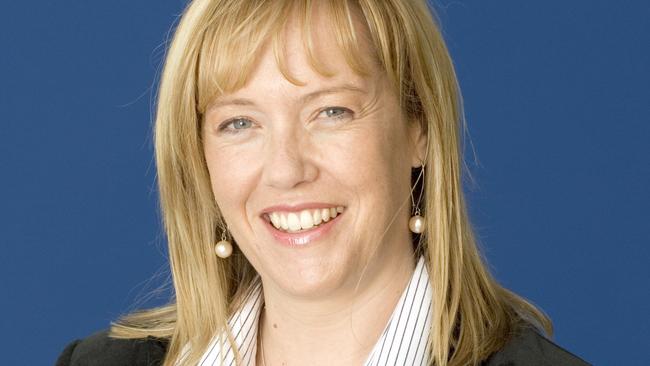
THE COUNSELLOR
Counselling psychologist, Dr Mandy Deeks, sees women stressed by carrying multiple roles in midlife.
“(The prevalence of midlife women using alcohol at higher levels than in the past) is down to a number of things; it’s definitely stress, competing demands, there is so much on women’s plates in the ‘sandwich generation’.
“When I did my PhD and looked at menopause, I asked women about empty nest syndrome. That was in 1995, I couldn’t do that with menopausal women now; in midlife they could have five year olds, 10 year olds, teens, ageing parents. They could be heavily into career but juggling majorly different roles, it puts a lot of pressure on relationships.
“I see lot of women really struggling; ‘Do I want to be with this person for the next 35 years?’ Plus that stress of trying to be a really good employee, not let anybody down, and just working like that duck on the water looking really smooth, and underneath paddling like mad.
“They also often say to me, ‘My friends wouldn’t know what’s going on, I’m here because I need to talk about it, but I don’t feel I could talk about it with my friends.
“It’s a bit like at mother’s group when everybody’s talking about the amazing organic food they’re preparing (you feel can’t bring up something upsetting you).
“There are exceptions, there are some women who rely on their friends, but a lot of them don’t want to be judged. They don’t want to let anybody know perhaps they’re not coping, and then there’s family stuff too.
“How I talk to women about alcohol use is, I have to assess if there’s depression, anxiety, stress or abuse, what else is happening? Is it that the anxiety and depression came before the drinking, or the drinking has been masking (something) and resulted in more anxiety, depression and stress. And where is someone’s confidence at, in themselves.
“What are they actually drinking, how much, and asking what would be something you would feel comfortable with — the thing I’m finding is a lot of people are desensitising to the health messages. ‘I know I should only be having two drinks a day, and two alcohol-free days, but that’s not going to make any difference to me’.
“A lot of women say, I know I do it (use alcohol very regularly to relieve stress) but actually I’m happy with it, it’s OK, it’s not that bad’. It would be wrong of me to make them feel bad because of it, they do already. I don’t need to add to that, it’s really about, ‘OK, we don’t have to change everything overnight, what are the things we can look at changing?’ It takes time.”
THE MUM WHO WENT TO REHAB
Mum Nicole shared her story with the Sunday Herald Sun, to help other women who may feel their alcohol use is not manageable.
“I never really drank much until my son was born, he’s now 18, but I had postnatal depression and stuff sort of kicked off from there. Typically at the end of the day, five or six o’clock, I would have a glass of wine and some chips and wind down that way.
“It stayed like that for years and probably wasn’t helped by fact my mothers’ group decided they didn’t want to do coffee and cake, they wanted to do wine and cheese. So I guess we all enabled each other.
BABY BOOMERS ARE OUR BIGGEST BOOZERS
WOMEN IN BINGE-DRINKING EPIDEMIC
“As the years went on, I got to the point where it was just a straight up habit; it wasn’t a reward, it wasn’t to cheer myself up, I could find any reason or no reason. It was strictly habit. I always found reasons to go to the bottle shop.
“I had reached a point where my very first thought in the morning was, ‘Have I got a bottle of wine in the fridge for tonight?’ If the answer was no, I would schedule it into my day.
“The quantity started to increase, I would go from a couple of glasses really quickly to a whole bottle a night, that wasn’t unusual and is still not unusual among most of my friends. They go, ‘How much are you drinking? A bottle a night? Oh that’s not that much’.
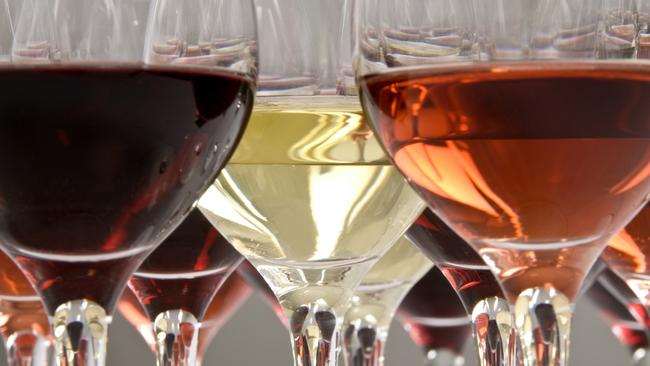
“I was the definition of the “school mum who lived for wine o’clock”. I tried it all — FebFast, Dry July, OcSober, but I couldn’t do it. I actually drank less than a lot of my friends, but it was the regularity (every night, without fail) and the fact that every morning I would make sure I had a bottle in the fridge for that night that was the problem. I was working full time, two kids, and fully functional.
“The school run, working mum, school pick-up routine more and more revolves around the term ‘wine o’clock’, I hear it every day and it is at the school gate, everywhere.
“And I find that amazing, it definitely wasn’t that when my oldest was really little, now it’s just what you do. I don’t know if it’s the area I live in, peer pressure is a big thing, teens from what I see are drinking less, and our generation are drinking more.
“My son drinks very little, with our generation, it’s just what you do.
“What it boiled down to is I couldn’t not have a drink; I could start the day with the best intentions and could never follow through.
“I’d never lasted a day, there was no way for me to have an alcohol-free day. That’s when I realised it was a problem.
“There was no real rock bottom, I had a really bad cold, maybe the flu, and I remember on a Saturday night I felt terrible, and even then I still had a glass of wine. I was like, ‘Are you kidding?’ I was so unwell I probably did have the flu, and all I could think about was, ‘Oh, I’ll just have a glass of wine — not even to feel better, just because that’s what I did.
“Seven years ago this October, I went to rehab. I knew that it was bigger than me — I have a long family history on my mother’s side of different addictions and behaviour and I could see myself going down the path of. That was pretty grim, I could just see my future.
“I never got drunk, I was drinking so much that I never really got drunk, the other thing I would say is I never drank during the day. I didn’t even like having wine at lunch, I would go to a champagne breakfast and not have champagne, I only ever drank at night.
“I’d never actually call myself an alcoholic, (but) I guess I have drinking problem, which means I can’t ever drink again.
“In my head, if I had one glass of wine something would say to me, ‘Well that’s it, all that work, you might as well forget it, you might as well go back to the way you were’.
“I saw a psychiatrist and he admitted me for a three-week program. I was very lucky, I had tons of family support and was able to access private hospital.
“My kids were young; they would have been six and 11, they can’t really remember me ever having a drink.
“Now, it’s always there. There are times when I really miss it ... with friends or at a Christmas party, those sorts of things. But I’ve always told people I no longer drink. One hundred per cent of the time they say ‘Oh, good on you’.
“(Giving up was) the hardest thing I ever did. And the best thing I ever did.”
Ask a question or share your story by emailing wendy.tuohy@news.com.au or commenting on our Facebook page


